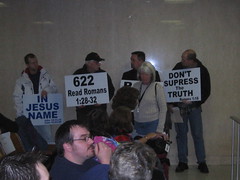My friend Marti passed along this quote from Bayard Rustin, who was a friend of Martin Luther King’s, and who worked alongside him during the civil rights movement:
“Indeed, if you want to know whether today people believe in democracy, if you want to know whether they are true democrats, if you want to know whether they are human rights activists, the question to ask is, ‘What about gay people?’ Because that is now the litmus paper by which this democracy is to be judged.”
“There are four burdens, which gays, along with every other despised group, whether it is blacks following slavery and reconstruction, or Jews fearful of Germany, must address.
The first is to recognize that one must overcome fear.
The second is overcoming self-hate.
The third is overcoming self-denial.
The fourth burden is more political. It is to recognize that the job of the gay community is not to deal with extremist who would castrate us or put us on an island and drop an H-bomb on us.
The fact of the matter is that there is a small percentage of people in America who understand the true nature of the homosexual community. There is another small percentage who will never understand us. Our job is not to get those people who dislike us to love us. Nor was our aim in the civil rights movement to get prejudiced white people to love us. Our aim was to try to create the kind of America, legislatively, morally, and psychologically, such that even though some whites continued to hate us, they could not openly mainifest that hate. That’s our job today: to control the extent to which people can publicly manifest antigay sentiment.”
There are a couple of significant differences in what gay and transgendered people face than other oppressed groups of people. One of them is that our families usually don’t prepare us for the hatred and discrimination that will be directed at us as we grow up, or to help us understand who we are and why we are before we face that hatred. Many time the people who discriminate against us are our own family members, which makes it doubly painful.
The other significant difference in the struggle that gay people face is that much of our history is completely lost to time. We know that gay people have been persecuted, oppressed, tortured and executed for centuries because we have seen the evidence of it in our history books, but only from the view of the persecutors, and very little of it survives from the point of view of gay people.
Other oppressed groups were able to pass history of their people through oral tradition through families and communities, and although that is a fragile method, it’s still significant.
